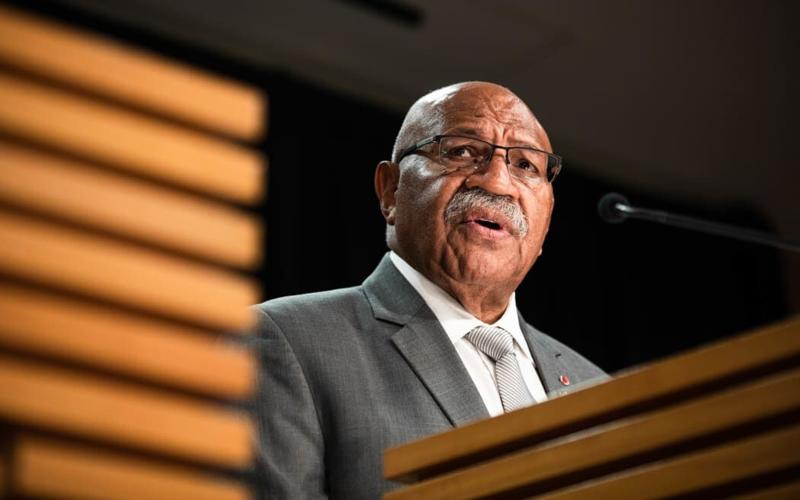FIJI (RNZ Pacific/Pacnews) — Fiji's prime minister Sitiveni Rabuka has given his blessing to the UN nuclear agency's report on the Fukushima wastewater issue.
Japan aims to gradually release 1.4 million tons of treated nuclear wastewater from the defunct Fukushima power plant over a period of 30-40 years.
The International Atomic Energy Agency (IAEA) has said Japan's plans meet the relevant international standards, but not all Pacific leaders are convinced of the project's safety.
Rabuka said he had made it his business as a Pacific Island leader to carefully study the information and data on the matter, and he had spoken to the Japanese ambassador this week.
"I am satisfied that Japan has demonstrated commitment to satisfy the wishes of Pacific island states, as conveyed to Japan by the Pacific Island Forum chair," he said.
"Japan has been a close friend of Fiji, and also the Pacific itself."
Rabuka said he had read the IAEA's report, and encouraged others to do the same.
"I am satisfied that the International Atomic Energy Agency (IAEA) report is reassuring enough to dispel any fears of any untoward degradation of the ocean environment that would adversely affect lives and ecosystems in our precious blue Pacific," he said.
"I am convinced of the seriousness of the IAEA to continuously monitor this process in Japan."
Rabuka's announcement follows months of back-and-forth debate on what the discharge will mean and concerns over the impact on the ocean.
Last month, Pacific Islands Forum chair Mark Brown said the release cannot be a breach of the Rarotonga Treaty as it's a controlled release and not a dump.
The Treaty commits the Pacific to being nuclear free, and bans the dumping of nuclear waste in the region.
"No, I don't think it would be in breach of the Treaty, if it's well within the safety standards," Brown said.
The then President of the Federated States of Micronesia earlier this year expressed his support for Japan's plans during a trip to Japan.
Papua New Guinea's Prime Minister James Marape said Japan could only go ahead with its plans if the "test is compliant upon all the global standards and requirements".
People in and around Fukushima have concerns, but the IAEA is adamant the safety standards are met.
IAEA chief Rafael Grossi said the watchdog's two-year review found the plan complies with international standards and the treated water will have "a negligible radiological impact on people and the environment".
South Korea too delivered a similar assessment, despite sticking to a ban on some Japanese food imports.
China condemned the IAEA, saying due to the IAEA's 'limited mandate', it failed to review its own justification principle, which means it must prove the benefits outweigh the harm to society and individuals.
Grossi rejected the claim.
Institute for Energy and Environmental Research President, Dr Arjun Makhijani - an expert panelist for the Pacific Islands Forum - also criticiZed the agency for ignoring that same principle.

















